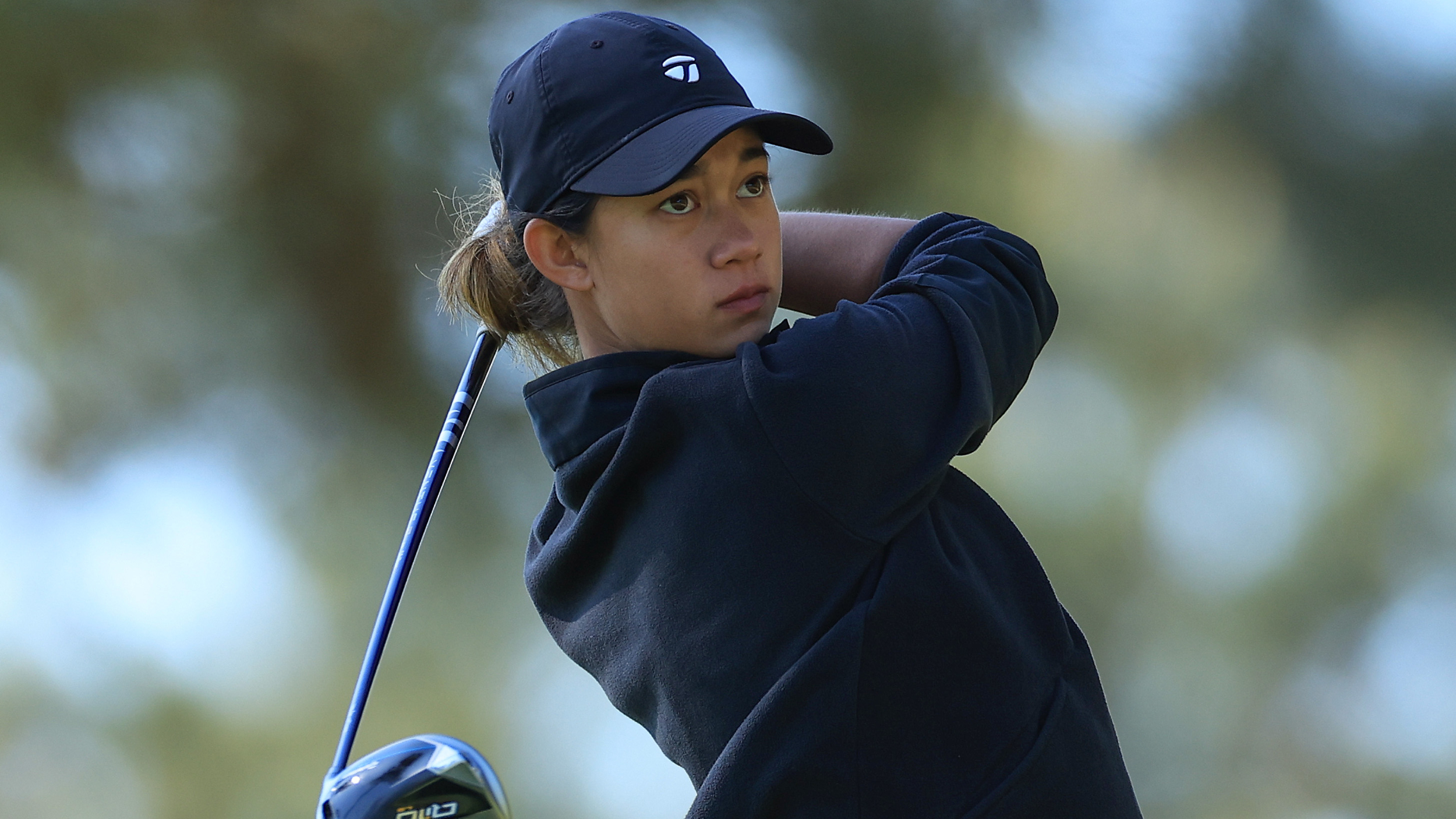What Handicap Are College Golfers?
The standard of college golf is impressive, but what handicap does a player need to reach that level?


Becoming a college golfer - particularly at NCAA Division I level - is a rare achievement. Figures show that even though there are approximately 220,000 high school golfers in the US in any given year, only around 10% reach college level, with around 5,000 men’s and women’s golfers reaching NCAA Division I level.
Those numbers confirm the inevitable: you need to play the game to an impressively high standard to make it to the top of the college system. But what handicap do you need make it to college golf?
Per college recruiting service Next College Student Athlete (NCSA), there is no set handicap for anyone to compete for an NCAA golf team, although for men, a good rule of thumb is to have a handicap that is 3.5/4 or better.
However, that would likely only be enough to make it to the NCAA Division III level. To make it into an NCAA Division I or II team, the site states that men’s golfers “typically have a 0 to +2 handicap”.
For women’s golf, it suggests NCAA Division I level players would benefit from a handicap no higher than 3, with that number rising to 8 for Division II players, a maximum of 12 for Division III golfers and a maximum of 20 for NAIA players.
Further information comes from an overview of US college golf published by the Argentine Golf Association, which states: “The standards to compete in college golf are high. On elite college teams of NCAA Division I, a sub-zero handicap and regular scoring average below 72 for men or a two handicap and scoring average below 76 for women is expected.”
While handicaps can be a factor in whether a player earns a scholarship, several other elements will be considered, and some players can be recruited even if they fall outside the recommended handicap ranges.
Get the Golf Monthly Newsletter
Subscribe to the Golf Monthly newsletter to stay up to date with all the latest tour news, equipment news, reviews, head-to-heads and buyer’s guides from our team of experienced experts.
Per PGA.com, Blaine Lynch, the former Head Golf Recruiting Coach for the NCSA, suggests that the three key factors in being considered for scholarships are, rather than golf handicap, academic performance, character of the athlete and the quality of tournament experience. Blaine adds: “College coaches do not care what your handicap is.”

Mike has over 25 years of experience in journalism, including writing on a range of sports throughout that time, such as golf, football and cricket. Now a freelance staff writer for Golf Monthly, he is dedicated to covering the game's most newsworthy stories.
He has written hundreds of articles on the game, from features offering insights into how members of the public can play some of the world's most revered courses, to breaking news stories affecting everything from the PGA Tour and LIV Golf to developmental Tours and the amateur game.
Mike grew up in East Yorkshire and began his career in journalism in 1997. He then moved to London in 2003 as his career flourished, and nowadays resides in New Brunswick, Canada, where he and his wife raise their young family less than a mile from his local course.
Kevin Cook’s acclaimed 2007 biography, Tommy’s Honour, about golf’s founding father and son, remains one of his all-time favourite sports books.
-
 Watch Bryson DeChambeau Smash 400+ Yard Monster Drive In LIV Golf Mexico Practice
Watch Bryson DeChambeau Smash 400+ Yard Monster Drive In LIV Golf Mexico PracticeDeChambeau is hitting mega drives this week in the 7,800ft altitude setting of Golf Club de Chapultepec in Mexico City
By Elliott Heath
-
 Tiger Woods Heads 8 Golfers To Make All Time Rich List Of Top 50 Highest Paid Athletes
Tiger Woods Heads 8 Golfers To Make All Time Rich List Of Top 50 Highest Paid AthletesTiger Woods is the second highest paid athlete of all time behind only Michael Jordan in a new top 50 rich list from Sportico
By Paul Higham
-
 Carla Bernat Escuder Facts: 10 Things To Know About The College Golfer
Carla Bernat Escuder Facts: 10 Things To Know About The College GolferThe Spaniard is making a big impression in her college career – here are 10 things to know about her
By Mike Hall
-
 6 Perks Of Winning The Augusta National Women's Amateur
6 Perks Of Winning The Augusta National Women's AmateurWhat does the winner get this week at the 2025 Augusta National Women's Amateur?
By Elliott Heath
-
 Who Is Luke Clanton's Caddie? Meet Jason Wiertel
Who Is Luke Clanton's Caddie? Meet Jason WiertelLuke Clanton was one of the first graduates from the PGA Tour U Accelerated program and has been with his caddie since long before turning professional
By Jonny Leighfield
-
 Eila Galitsky Facts: 10 Things To Know About The College Golfer
Eila Galitsky Facts: 10 Things To Know About The College GolferThe University of South Carolina player is making a big impression on the game, including in one of the Majors - here are 10 things to know about her
By Mike Hall
-
 Amanda Sambach Facts: 10 Things To Know About The College Golfer
Amanda Sambach Facts: 10 Things To Know About The College GolferThe University of Virginia's Amanda Sambach has been a keen golfer since she was five - here are 10 things to know about her
By Mike Hall
-
 Meja Ortengren: 10 Things To Know About The College Golfer
Meja Ortengren: 10 Things To Know About The College GolferMeja Ortengren is one of the world’s best amateur golfers - here are 10 things to know about her
By Mike Hall
-
 Patience Rhodes Facts: 15 Things To Know About The Arizona State Golfer
Patience Rhodes Facts: 15 Things To Know About The Arizona State GolferPatience Rhodes is building a solid reputation in US college golf – here are 15 things to know about the Arizona State golfer
By Mike Hall
-
 Paula Martin Sampedro Facts: 10 Things To Know About The College Golfer
Paula Martin Sampedro Facts: 10 Things To Know About The College GolferPaula Martin Sampedro is one of the standout talents in US college golf – here are 10 things to know about her
By Mike Hall